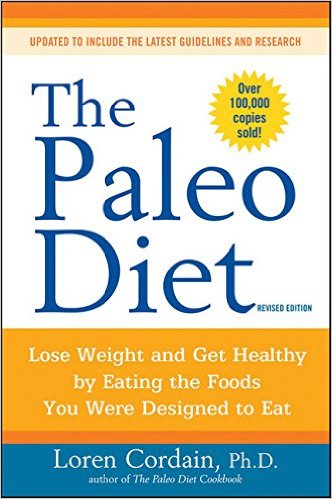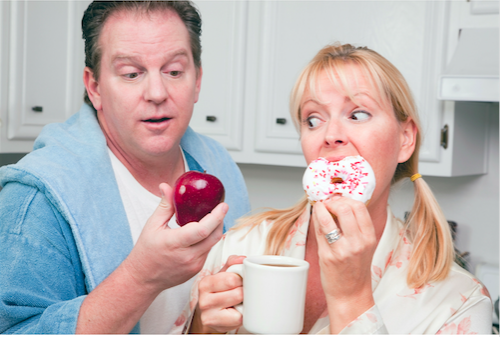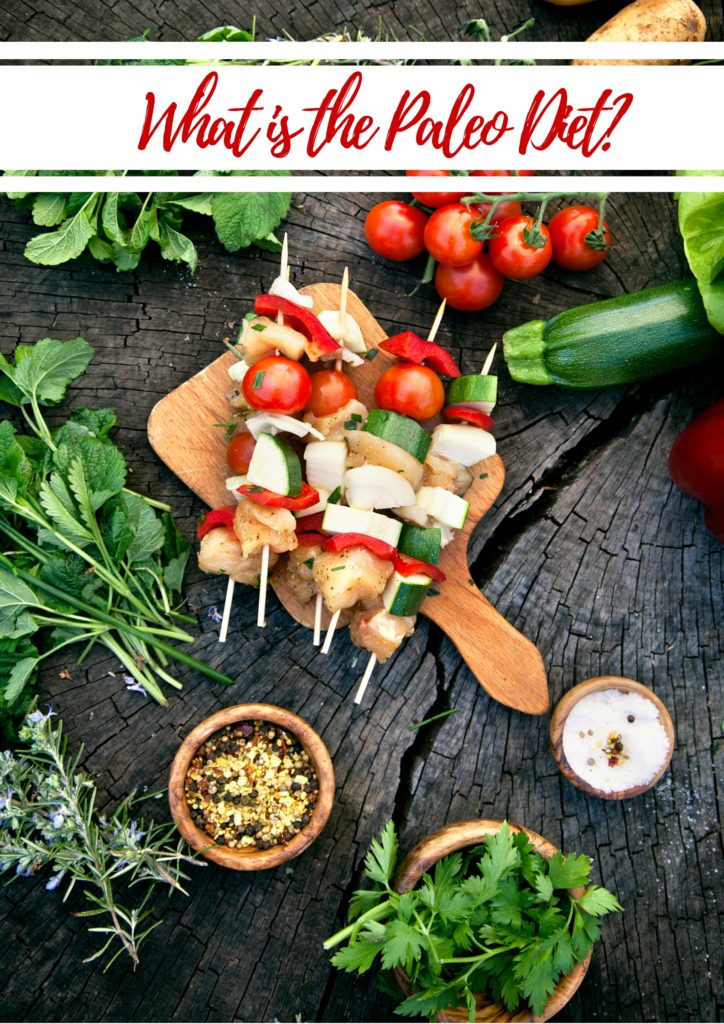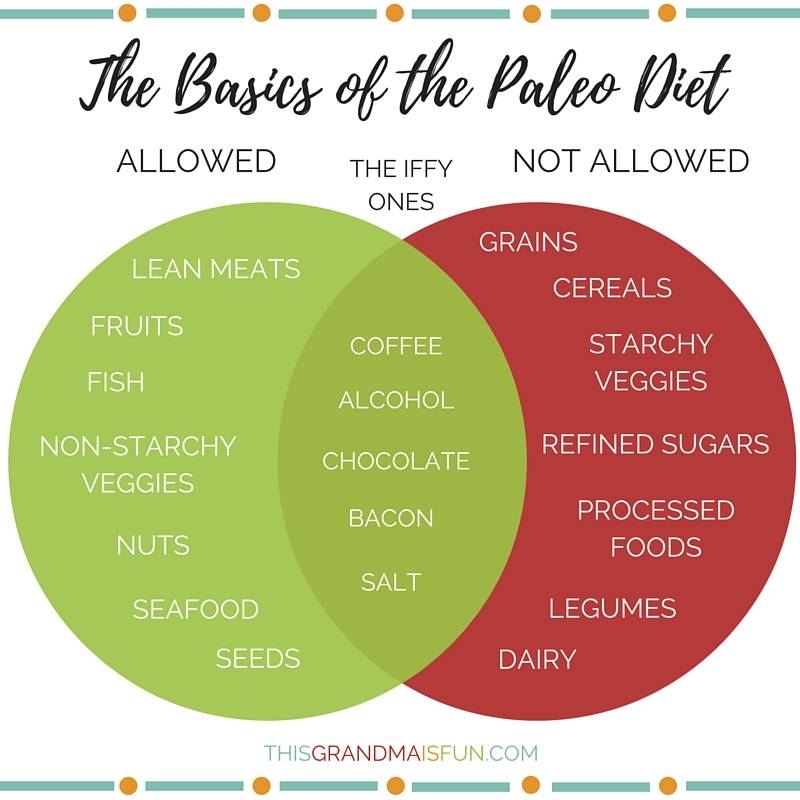Caveman diet. Raw paleolithic diet. Hunter-gather-diet. Stone age diet. Primal diet. Ancestral diet. Just by the reading these names, you probably are picturing yourself eating raw meat siting in a cave somewhere. I know I did! But it turns out that these names are actually just another name for the Paleo diet. With so many titles, exactly What Is The Paleo Diet?
Well, let me first tell you that no, you don’t have to eat raw meat.
I personally had no clue what Paleo even was before I started researching it. However, my attitude toward it drastically changed as I realized all it requires. While I’m not ready by any means to jump in and become a full fledge Paleo dieter (I’d have to give up my addiction to cheese, peanut butter, brownies, ice cream, and well…sweets), I do feel a desire to be a bit more conscious about what I put into my body.
Hopefully after reading this, you can nod along with your friends and actually understand what they mean when they say, “I’m going Paelo.” Whether or not you decide to join them is your choice.
The post “What is the Paleo Diet” may contain affiliate links. For more information, click to see our disclosure policy.
So What Is The Paleo Diet?
To put it simply, the Paleo diet includes eating foods that our hunter gatherer ancestors who lived in the Paleolithic era consumed. It’s all about taking it back to the basics.

Many athletes stick to this diet and it is even sometimes called the CrossFit diet. There are also many with Celiac Disease or a gluten allergy who prefer to eat Paleo. Others choose to go Paleo because of the health benefits associated with the diet.
Paleo followers may enjoy some of these health benefits:
- Weight loss
- Improvement in mental outlook
- Better cardiovascular and metabolic health
- More energy and better sleep
Other health benefits can be found here. The ultimate purpose of the Paleo diet is to enjoy a healthier, longer life.
However, there is the risk of calcium and vitamin D deficiency, as well as, a risk of toxins from consuming too much fish. Most people report experiencing a period of feeling sick for the first couple of weeks as their body adjusts to a new diet, but sometimes it is just a couple days.
So when it comes down to the nitty-gritty of it all, what can and can’t you eat? Now, not all experts agree on the same guidelines of what qualifies as Paleo and what doesn’t, but here is the general consensus from my research.
What Can You Eat?
Following this hunter-gather-diet can be a bit expensive – both in the money and time department. It takes pla
- Lean meat
- Seafood
- Eggs
- Fruit
- Vegetables (non-starchy and roots)
- Nuts
- Seeds
Just so you could get a taste of what to expect in a day, I included this awesome example for a Paleo-delicious meal plan curtious of the folks over at Paleo Plan.
Breakfast
-Eggs, sausage, mushrooms, onions, garlic, and kale
-Sauteed and scrambled in coconut oil
-Avocado to top it off
Lunch
-Tossed green salad with tons of veggies (spinach, peppers, tomatoes, cucumbers, etc.)
-Grilled chicken/beef/pork
-Olive oil, herb, and lemon juice dressing
-Cantaloupe, blackberries, and pecans
Snack
Leftover baked salmon and red peppers
Dinner
-Venison steak
-Steamed summer squash with lemon juice, coconut milk, and cinnamon
-Sauteed asparagus
Dessert
-1 or 2 dates
Now, whether you are for or against diets similar to the Paleo diet, you have to give props to those who do follow them. It takes a lot of planning and preparation.
If you want to try some other great Paleo dishes, click on these recipes below.
*Disclaimer: There are some ingredients found in these recipes that don’t fully qualify as Paleo. So you can either take them out, find a replacement, or use them as part of your transitional recipe stage!
What Should You Avoid Eating?
Because the basic pretense of the Paleo diet originates from our great great great great great…well you get the picture…great ancestors in the Paleolithic era and what they would have eaten, there are quite a few foods we eat without thinking that are off limits.
So here is the low down on the no-nos:
- Grains
- Cereals
- Legumes
- Dairy products
- Processed foods
- Refined sugars
Obviously, this is a lot to cut out of your diet immediately. Those over at CrossFit Paradox explain nicely the idea behind this type of eating,
“It causes you to burn fat for fuel decreasing body fat, avoids storing excess glucose as fat, helps maintain hormonal balance and decreases inflammation in the body.”
So if you are trying to decide if this diet is for you, I’d highly recommend doing your own research before jumping on the Paleo bandwagon. I particularly loved reading about people’s experiences! Here is one of my favorite articles I found from Women’s Health Magazine, 7 Things No One Tells You About Going Paleo.
So now can you answer the question, “What is the Paleo diet?” Hopefully! I know I understand it a whole lot better! At least now I know what I could cook for my friends and family who are following the diet.
The Paleo diet is similar to clean eating. To learn more about the clean eating and how it differs from the Paleo diet click here.



There are no magic foods. Some foods may help you suppress your appetite a little. Some other foods may slightly increase your metabolic rate. Unfortunately, the effect is miniscule. The only way to really lose fat is to consume fewer calories than you burn. This way your body will tap into the fat stores to get the energy it needs.
Thanks for the insight Kristi, I started paleo a while back, and I know this article is a little old, but still holds lots of value and tons of reliable information thanks for sharing!
Well, thank you! Sure appreciate your kind words. I love learning about health topics and becoming informed. I think it is so important to do so! Hope all is well!